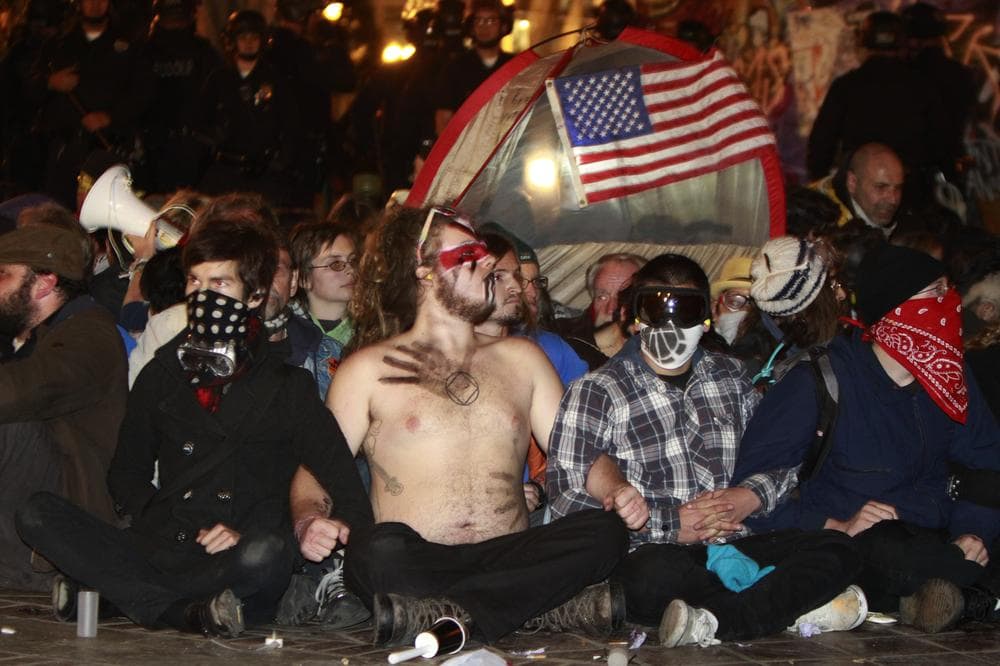Advertisement
Will Occupy Movement Become Political Force?
Resume
What's next for the Occupy movement, now that police in Los Angeles and Philadelphia have cleared out encampments overnight?
In both cities, most protesters followed police orders, but several hundred were arrested for not leaving. On the local TV station KTLA, Los Angeles Mayor Antonio Villaraigosa said he was proud of the restraint the police used under trying circumstances.
Bail for the protesters was set at $5,000 per person. In Philadelphia, police followed chanting protesters as they marched through the city after their eviction. Meanwhile, the city of Boston goes to court Thursday to try to remove Occupy protesters from a public square downtown.
John Heilemann, national affairs editor for New York Magazine, writes that the Occupy movement is on the cusp of change, moving towards leadership and maybe even political action--there's talk of occupying Congress, the National Mall, perhaps even the Democratic and Republican national conventions next year.
But Heilemann says the movement poses a threat for President Obama and his re-election, in the same way the student movement of 1968 hurt Democrat Hubert Humphrey.
"You had a student movement largely driven by the Vietnam War... that demonstrated in Chicago to dramatic effect-- shattering Hubert Humphrey's liberal base and repulsing a part of the country that Richard Nixon was able to appeal to," he said.
Nixon was able to associate Humphrey with the worst aspects of the student movement, and win the election, Heilemann says.
When it comes to the Occupy movement, Heilmann sees "no love" for the president.
"These are mostly people who either think that he's irrelevant to the kind of change they think is important, or these are people who are embittered. They feel he turned out to be not the kind of transformational progressive president they hoped he would be," he said.
Heilemann says this group has no interest in trying to be channeled to help the president get re-elected, and they could really hurt his re-election bid, especially if, for example, they protest the Democratic National Convention next summer.
- New York Magazine: 2012=1968?
Guest:
- John Heilemann, national affairs editor for New York Magazine.
This segment aired on November 30, 2011.